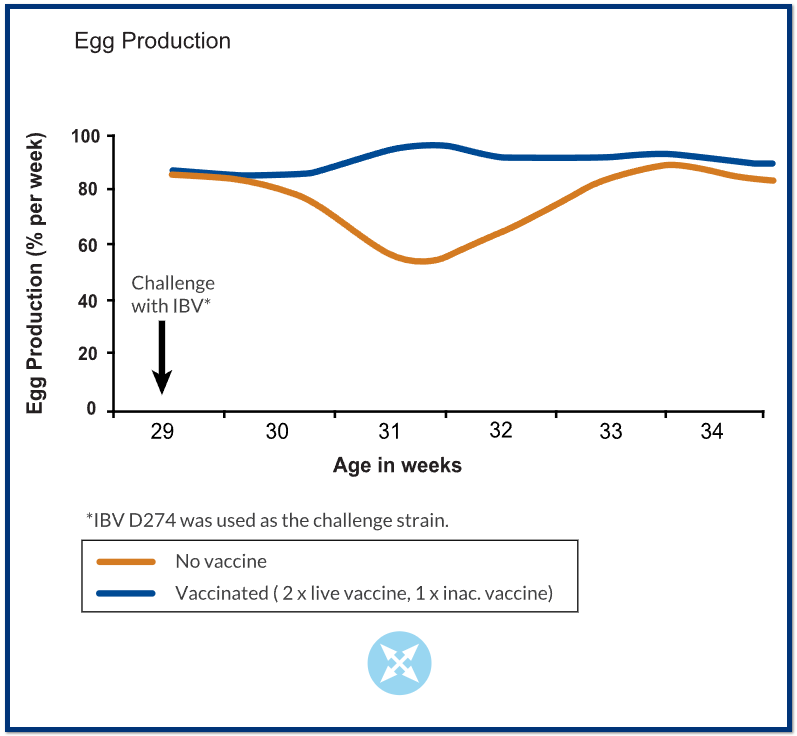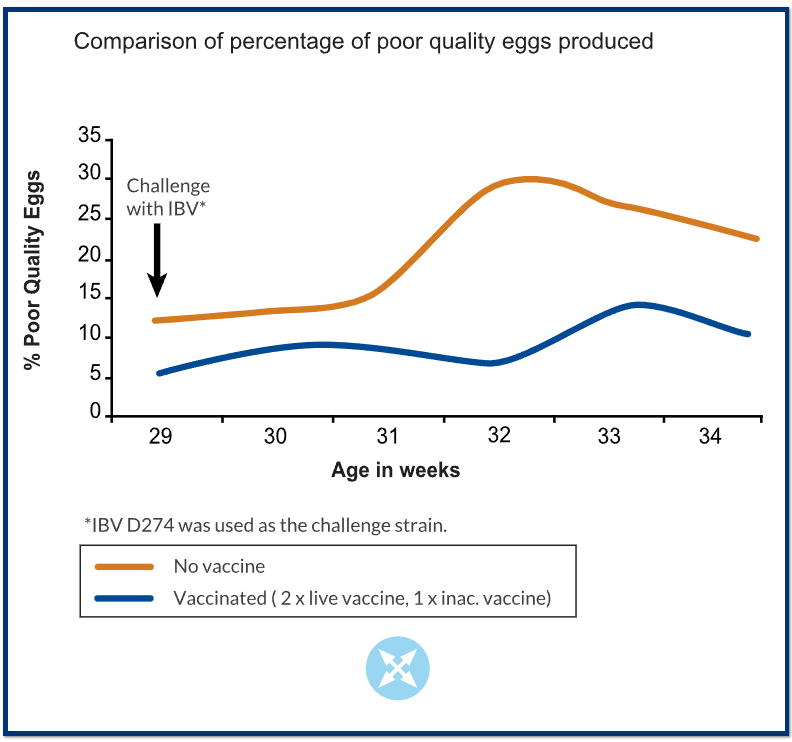Clinical signs of Infectious Bronchitis Virus (IBV) infection
IBV affects the respiratory and urogenital tract in infected birds.
Clinical signs
Birds of all ages are susceptible to infection but the clinical signs may vary. The first recognized and most conspicuous signs are the respiratory signs, hence the name Infectious Bronchitis. However, the pathogenicity of the virus for the oviduct in very young chicks or birds in production is often more important. The kidneys may also be affected.
The following may be seen:
- Young chickens are depressed and huddle under the heat source.
- Respiratory signs ‐ gasping, coughing, tracheal rales and nasal discharge.
- Birds in lay have a marked drop in egg production and an increased number of poor quality eggs may be produced.
- The external and internal quality of the eggs may be affected, resulting in misshapen or soft‐shelled eggs with watery content.
- The hatchability rate of the eggs may be affected.
- When the kidneys are affected, increased water intake, depression, scouring and wet litter are commonly observed.


In the graphs below it can be seen how an IB infection of layers and breeders causes egg production losses and poor quality eggs in unprotected birds.


